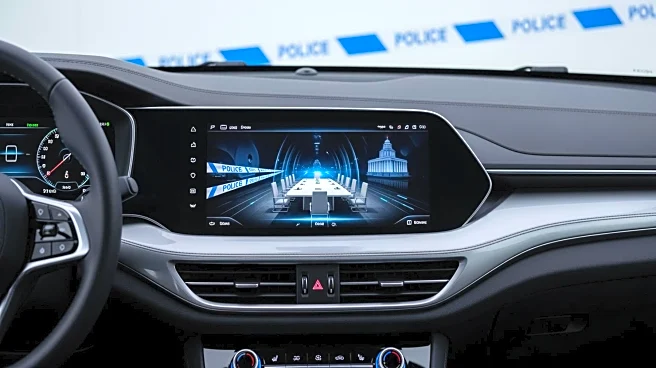What's Happening?
BMW Group has become the first German automaker to receive international approval for its advanced driver assistance systems under the new UN Regulation No. 171 for Driver Control Assistance Systems (DCAS).
This certification applies to the upcoming BMW iX3, part of the company's Neue Klasse lineup, and facilitates the broader deployment of BMW's 'hands-off' Motorway Assistant across Europe. The DCAS framework establishes global safety and performance standards for Level 2 driver assistance systems, ensuring consistent testing and validation procedures. The Motorway Assistant allows drivers to remove their hands from the steering wheel at speeds up to 130 km/h, while the vehicle autonomously maintains its lane and distance. Drivers must remain attentive and ready to take control at any time. The system can perform automatic lane changes, confirmed by the driver glancing at the side mirror. The approval removes the need for case-by-case exemptions, allowing BMW to offer the technology more broadly across European and ECE markets.
Why It's Important?
The approval of BMW's advanced driver assistance systems under the new UN regulation marks a significant milestone in the automotive industry, particularly for semi-automated driving functions. This development is crucial as it sets a precedent for other automakers seeking similar certifications, potentially accelerating the adoption of autonomous driving technologies. The broader deployment of these systems could enhance road safety by reducing human error and improving traffic flow. For BMW, this approval strengthens its position as a leader in automotive innovation, potentially increasing its market share in Europe and beyond. The integration of such technologies also reflects a shift towards more sustainable and efficient transportation solutions, aligning with global efforts to reduce carbon emissions and improve urban mobility.
What's Next?
BMW plans to debut the Motorway and City Assistant with the BMW iX3's market launch in Germany later this year, with a rollout to additional European countries expected to follow. The company is also introducing Symbiotic Drive, a design philosophy that blends driver control with active assistance, allowing drivers to make minor steering or braking inputs without deactivating the assistance system. Additional capabilities for complex traffic conditions will be introduced through over-the-air updates. These developments are supported by more than two dozen related patent applications, indicating BMW's commitment to advancing its driver assistance technologies.
Beyond the Headlines
The approval of BMW's driver assistance systems under the new UN regulation highlights the evolving landscape of automotive technology and the increasing role of artificial intelligence in driving innovation. This development raises ethical and legal considerations regarding the responsibility and liability in semi-autonomous driving scenarios. As these technologies become more prevalent, there will be a need for updated regulations and standards to ensure safety and address potential privacy concerns related to data collection and usage. The integration of AI in driving also prompts discussions about the future of human involvement in vehicle operation and the potential impact on employment in the transportation sector.









